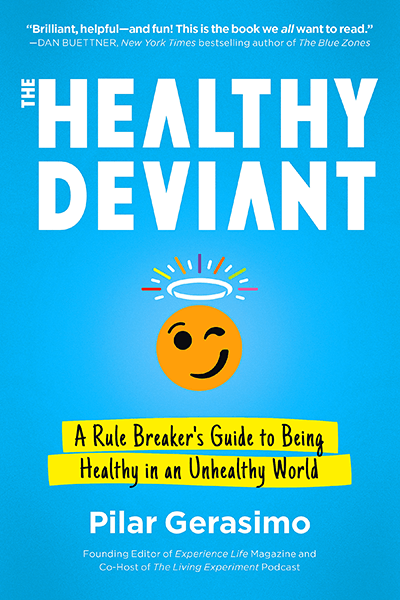This week, we’re talking about Moving Forward in this unusual time in history.
Thanks to COVID-19, we’re still recording from a distance. Since we were last in the studio though, and even since the last time we did one of our COVID-edition Facebook Live episodes, so much has happened.
We’ve seen new waves of conflict around the pandemic, as well as the murder of George Floyd and the historic calls for social and racial justice via the Black Lives Matter movement.
Meanwhile, we’ve been witnessing divisions widening, not just within our country, but within our circles of family and friends.
So here, we talk about how we’ve been coping with the present moment, and also about how we are moving forward, from managing our media choices and navigating difficult conversations to finding our own points of view in what can seem like a very disorienting world.
Finally, we leave you with some experiments that encourage you to explore your own capacity for making sense of what’s happening now, and for building discernment into your own next steps.
AND we offer hearty thanks to this season’s sponsor: Brian Johnson’s Optimize by Heroic.
“Moving Forward” Episode Highlights
- Dallas and Pilar talk about what they’ve been doing (or not doing) and how they’ve been coping during the pandemic and this time of social and racial unrest
- Controlling the flow of potentially distressing information rather than letting it chase you down
- Understanding the reactivity triggered by difficult conversations — the DARVO (Deny, Attack, Reverse Victim-Offender) phenomenon and the Karpman Drama Triangle
- Victim-hood as a reaction to shame, trauma and fear of loss
- How to talk to someone who disagrees with you: Create a safe, defined, private space and don’t get attached to specific outcomes
- Overcoming our personal and societal resistance to being told what to do, even in the interest of the greater good (mask mandates, for example)
- Stoic philosophy and the dichotomy of control: Understanding what you can’t control (the pandemic), and what you can (your responses to it, how you show up and manage yourself under strain)
- Interpreting prevailing scientific data and topical expertise with precautionary practicality — while still maintaining a healthy skepticism of the large institutions behind it
- Opting out of the reactivity feedback loop: Not getting sucked into violent, inflammatory mindsets may be the most important thing we can do to heal ourselves and our communities
- The benefits of slowing down and sitting with discomfort so we can learn from it
- Addressing the rise of tribalism, and rekindling the hope of diverse people uniting to overcome our biggest problems

Go back to someone you had an uncomfortable conversation with, or someone who said something you found shocking. Start with your own vulnerability — tell them that you were triggered and how you reacted (by withdrawing, getting defensive or angry, etc.). Then invite them to tell you how they felt in that moment of conflict. Sometimes the charge of an exchange can obscure the real meaning and flood (rather than support) the space of the relationship.

Listen to our “Trauma” episode with Resmaa Menakem, paying particular attention to his description of how our bodies respond physiologically to being triggered. If you can begin to recognize the initial signals that you’re moving into fight or flight, you may be better able to control your reaction.
If you want to conduct a controlled experiment on your trigger responses, seek out a social media feed or news channel that expresses opinions you don’t agree with. Notice how long it takes before you recognize unwelcome feelings — heat, flutters, anger, narrowing peripheral vision, a desire to hit something or someone. Bring yourself back down and consider what it was that caused your reactions.
If you don’t want to create a stress reaction as an experiment, just take a moment to breathe, rest, relax and do something you enjoy. Consider listening to our “Coping” episode.
Resources
- Our recent Facebook Live episodes: “Pandemic Navigation”, “Re-Ordering Your Body-Mind”, “The New Normal”, “What Comes Next?”, “Rethinking the Win” (with Pilar and Lea B. Olsen)
- Our “News” episode — advice for managing your media intake
- More on coping in “Coping” and “How We See the World”
- Some serious info and resources on DARVO via its Wikipedia entry, plus a more comedic 90-second animated explainer via South Park: “It’s Called DARVO”
- “The Three Faces of Victim — An Overview of the Victim Triangle” by Lynne Forrest, on the Karpman Drama Triangle
- Physical, mental, emotional and cultural expressions of trauma in “Trauma with Resmaa Menakem”
- “Stoicism in time of pandemic: How Marcus Aurelius can help” from The Guardian
- Pilar’s Healthy Deviant U membership experience
Break the rules, or break yourself.
Pilar Gerasimo
Looking for ongoing support for healthier, happier daily choices?
Check out Pilar’s “Healthy Deviant U” experience.

If you like this podcast, you will love our books!

ORDER FROM AN INDEPENDENT BOOKSELLER
ORDER FROM AMAZON

ORDER FROM AN INDEPENDENT BOOKSELLER
ORDER FROM AMAZON
Plus …
Sign up for The Living Experiment newsletter so you can stay up to date with us, and receive notifications when new episodes are released.
Subscribe to The Living Experiment on Apple Podcasts to have fresh episodes delivered to your podcast feed as soon as they’re released.
Sponsor Love and FREEBIES!
Thanks to our sponsor, Optimize by Heroic, for supporting this season of The Living Experiment. Now you can get Optimize membership (formerly $250) for FREE just by signing up here. And check out the Heroic social training platform, with a goal of creating a world in which 51% of the world’s population is flourishing by 2051 — starting with YOU!

Share the Love!
Have you told your friends and family about The Living Experiment? If you dig the podcast, please share it! And leave a review at Apple Podcasts or wherever you subscribe. Every recommendation from you means a lot!